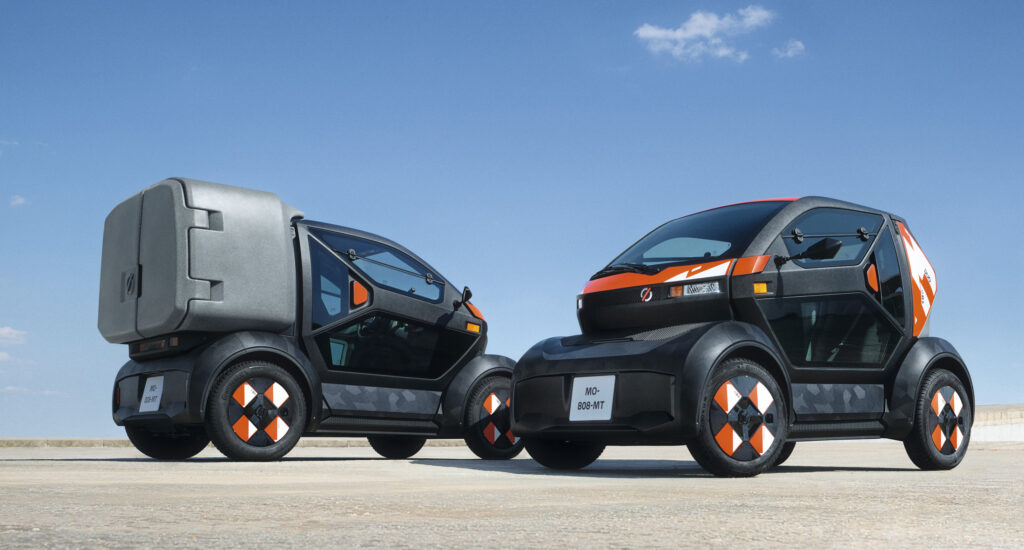An ever-larger share of ICE’s arrested immigrants have no criminal record
There were 105 immigration arrests in October at a horse racetrack in Wilder, Idaho. Idaho saw one of the country’s largest increases in immigration arrests this year through mid-October compared with the same period in the Biden administration. (Photo Courtesy of ACLU of Idaho)
Immigration arrests under the Trump administration continued to increase through mid-October, reaching rates of more than 30,000 a month. But, rather than the convicted criminals the administration has said it’s focused on, an ever-larger share of those arrests were for solely immigration violations.
In 45 states, immigration arrests more than doubled compared with the same period last year, during the Biden administration. The largest increases: There were 1,190 arrests in the District of Columbia compared with just seven last year under the Biden administration. Arrests were also more than five times higher in New Mexico, Idaho, Oregon and Virginia.
“The result stands in contrast to the administration’s objective of arresting the ‘worst of the worst,’” said Ariel Ruiz Soto, a senior policy analyst at the nonpartisan Migration Policy Institute. Heightened enforcement is likely increasing “collateral” arrests of people found during searches for convicted criminals, he said.
Comparisons between the Trump and Biden administrations were calculated by Stateline in an analysis of data released by the Deportation Data Project, a research initiative by the universities of California at Berkeley and Los Angeles. About 93% of arrests could be identified by state.
While more people were arrested this year, a lower percentage are convicted criminals.
The share of arrested immigrants who had been convicted of violent crimes has dropped from 9% in January to less than 5% in October. The share under Biden was consistently between 10% and 11% during the same period in 2024.
The same trend applies to people arrested solely on immigration violations: Immigration violations alone were behind 20% in April, then rose to 44% of arrests in October, according to Stateline’s analysis.
In some states and the District of Columbia, a majority of arrests were for immigration violations alone: the District of Columbia (80%), New York (61%), Virginia (57%), Illinois (53%), West Virginia (51%) and Maryland (50%).
States with high immigrant populations also saw the most arrests this year. The largest numeric increases were in Texas (up 29,403, triple last year’s figure), Florida (up 14,693, a fourfold increase) and California (up 13,345, a fourfold increase).
The two states with the largest arrest rate increases have responded very differently to President Donald Trump’s deportation mission.
“We’re going to resist like all of the Democratic states,” New Mexico Democratic Gov. Michelle Lujan Grisham said in an interview with The Santa Fe New Mexican after last year’s election, referring to mass deportation plans. She proposed legislation to ban U.S. Immigration and Customs Enforcement detention facilities in the state. The legislation failed this year, but Lujan Grisham urged the state legislature to reconsider next year. The state has three privately run ICE detention centers with the capacity for 2,000 people.
Idaho’s Republican governor, Brad Little, is helping ICE under a 287(g) agreement by transporting what his office calls “highly dangerous illegal alien criminals” from county jails to federal custody. The 53 men pictured on the governor’s website have charges ranging from drug possession to sexual assault.
In a news release, the office says the program is intended to take people “after the completion of their sentences,” though an October review by the Idaho Capital Sun found some were transported despite dismissed or still-pending charges.
Nationally, arrests have increased this year from around 17,000 in February, the first full month of President Donald Trump’s current term, to more than 30,000 in September and October. The share of convicted criminals has dropped from 46% to 30%, though the number of convicted criminals arrested still has been higher each month than under President Joe Biden.
Some of the policies that have fed increased arrest numbers face new court battles. This month, a federal judge blocked the administration from making immigration arrests in the District of Columbia without warrants or probable cause.
In August, a federal court blocked the administration’s expansion of expedited removal, which itself allows fast deportations without judicial review. The administration has appealed, arguing that immigrants who have been in the country for less than two years without legal authorization are not guaranteed due process.
Such fast deportations could be used on 2.5 million people, according to a Migration Policy Institute estimate published in September, including 1 million people released at the border with Mexico with court dates and 1.5 million people with temporary protections such as humanitarian parole.
This fall, the share of arrested immigrants with criminal convictions continued to decrease just before and during the federal government shutdown, with only 3% of those arrested and detained having convictions between Sept. 21 and Nov. 16, according to national information analyzed by Transactional Records Access Clearinghouse (TRAC), a data research organization at Syracuse University.
“While ICE is detaining more and more individuals, targeting has shifted sharply to individuals without any criminal convictions,” the TRAC report noted.
Editor’s note: This story has been updated to clarify a reference to October detention statistics analyzed by Transactional Records Access Clearinghouse.
Stateline reporter Tim Henderson can be reached at thenderson@stateline.org.
This story was originally produced by Stateline, which is part of States Newsroom, a nonprofit news network which includes Wisconsin Examiner, and is supported by grants and a coalition of donors as a 501c(3) public charity.

